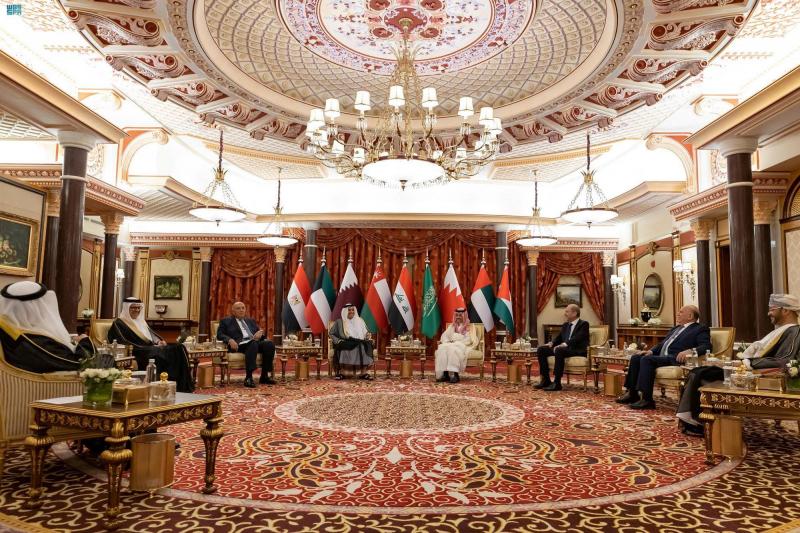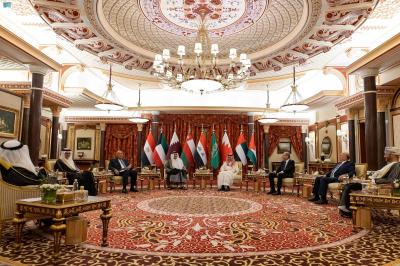Arab leaders are gathering today, Friday, in Jeddah to participate in an Arab summit, which includes Syrian President Bashar al-Assad, following diplomatic efforts that led to the return of Damascus to its Arab surroundings after more than 11 years of isolation due to the devastating conflict in the country.
This summit is exceptional, though it is the regular 32nd session of the Arab League Council at the level of leaders and heads of states, its uniqueness lies in its timing and the context in which it is held. Despite a crowded agenda with numerous hot Arab issues, from Palestine to Lebanon, as well as the volatile situations in Sudan and Libya, and the Yemeni crisis, the summit, chaired by Saudi Arabia, has already succeeded before it convenes, as it witnesses the return of Syria to its seat and the participation of President Bashar al-Assad after nearly 12 years of absence from the Arab fold. Syria's membership in the Arab League was suspended in response to its crackdown on protests that broke out in 2011, which turned into a bloody conflict that claimed the lives of over half a million people.
Experts believe that Assad's invitation to attend the Jeddah summit also reflects Saudi influence, as the kingdom currently seeks to emerge as a peace broker in the region, having overcome objections from several countries, including Qatar, to bring Syria back into the Arab fold during discussions in Cairo earlier this month. In addition to normalizing relations with Assad’s regime, the summit’s agenda is expected to prioritize two major crises: the ongoing conflict in Sudan, which has lasted for a month between the army led by General Abdel Fattah al-Burhan and the Rapid Support Forces led by General Mohamed Hamdan Dagalo, and the conflict in Yemen, which has persisted for more than eight years. The summit is taking place in Jeddah, where representatives of both Sudanese parties have been negotiating for about ten days, under the auspices of American and Saudi officials. In Yemen, Saudi Arabia is pushing for a peace agreement between the Houthis and the government it supports, although Saudi diplomatic efforts in both files have not yielded significant gains, yet analysts and Saudi commentators remain optimistic.
**Wave of Reconciliation**
Recent diplomatic shifts accelerated after a surprise agreement mediated by China that resulted in the resumption of severed relations between Saudi Arabia and Iran, announced on March 10th. Less than two weeks later, Saudi Arabia announced that it had begun talks about resuming consular services with Syria, its close ally to Iran, before announcing its decision to reopen its missions in the country, followed by reciprocal visits from the foreign ministers of both countries for the first time in over a decade. Indicating Syria's interest in participating in the summit, Syrian Foreign Minister Faisal al-Miqdad participated in a preparatory session for the expected summit on Wednesday. It remains unclear whether the Arab League will be able to take effective action on pressing issues such as the fate of Syrian refugees and the trade of "captagon," which Damascus is accused of supporting.




